Sleep apnea is a sleep disorder that can have negative effects on overall health. Sleep apnea is a condition where the individual stops breathing numerous times a night and then their body abruptly wakes them up to catch their breath. It has been linked to diabetes, hypertension and even brain damage.
Over the course of 2015 much news came out about how sleep apnea can negative impact health and increase the risk of other health ailments. Below are Bel Marra Health’s top news stories about sleep apnea, which we hope you will find useful and will prompt you to get yourself checked out if you believe that you may have it.
Sleep Apnea and Brain Damage: Obstructive sleep apnea can cause brain damage: Study
Advertisement
Obstructive sleep apnea is breaking down the blood-brain barrier.
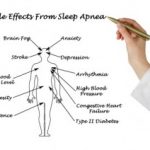 Obstructive sleep apnea is causing brain damage by breaking down the blood-brain barrier – a vital player in the safeguarding of brain tissue. A recent study at UCLA uncovered the first evidence that proves the dangers of obstructive sleep apnea on the brain.
Obstructive sleep apnea is causing brain damage by breaking down the blood-brain barrier – a vital player in the safeguarding of brain tissue. A recent study at UCLA uncovered the first evidence that proves the dangers of obstructive sleep apnea on the brain.
When the blood-brain barrier is broken or compromised, it is not able to function properly in its protective role. When it is functioning, it is able to limit dangers to the brain such as infections, chemicals and harmful bacteria by successfully protecting the brain tissue. However, a compromised blood-brain barrier is linked to substantial damage in the brain, leading to epilepsy, multiple sclerosis, stroke, meningitis, Alzheimer’s disease and other serious conditions. Learn More
Sleep Apnea and Erectile Dysfunction: Sleep apnea patients with erectile dysfunction linked with depression
Sleep apnea patients with erectile dysfunction are at risk for depression.
 Depression has been linked to erectile dysfunction in patients with sleep apnea, according to the latest findings. Sleep apnea is a condition where the patient temporarily stops breathing numerous times a night, causing them to wake up suddenly to catch their breath.
Depression has been linked to erectile dysfunction in patients with sleep apnea, according to the latest findings. Sleep apnea is a condition where the patient temporarily stops breathing numerous times a night, causing them to wake up suddenly to catch their breath.
Other research has linked sleep apnea with diabetes and gout. The current study focused on erectile dysfunction within male sleep apnea patients and found that the severity of sleep apnea may not have as much to do with erectile dysfunction as depression does.
Hyun-Woo Shin, M.D., Ph.D., senior study author, said, “Although the severity of obstructive sleep apnea is one of the risk factors for erectile dysfunction, the depression is likely to have a bigger impact. Doctors should worry about erectile dysfunction if men show depressive symptoms, even in mild or moderate obstructive sleep apnea patients.” Learn More
CPAP and Depression: Depression in adults reduced with CPAP therapy for sleep apnea
CPAP therapy can improve depressive symptoms in adults with OSA.
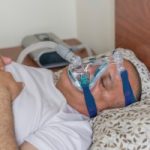 In adults with obstructive sleep apnea, treatment with a continuous positive airway pressure therapy (CPAP) therapy can improve depressive symptoms. Depression is commonly seen in individuals with obstructive sleep apnea, so by treating the sleep apnea they can reduce their risk of depression.
In adults with obstructive sleep apnea, treatment with a continuous positive airway pressure therapy (CPAP) therapy can improve depressive symptoms. Depression is commonly seen in individuals with obstructive sleep apnea, so by treating the sleep apnea they can reduce their risk of depression.
The findings of the study revealed 73 percent of sleep apnea patients had clinical depressive symptoms at baseline. Depressive symptoms became worse with severity of obstructive sleep apnea.
Only four percent of sleep apnea patients sustained depressive symptoms while adhering to CPAP treatment for three months. The study used 41 sleep apnea patients who had previously noted feelings of self-harm or reported being “better off dead.” By adhering to CPAP treatment they saw improvements in depressive symptoms after three months of CPAP therapy. Learn More
Sleep Apnea and Heart Failure: Study detects obstructive sleep apnea (OSA) in congestive heart failure (CHF) patients
Researchers can predict OSA in patients with congestive heart failure.
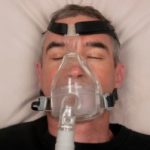 A recent study shows that it is possible to predict the onset of obstructive sleep apnea (OSA) in patients suffering with congestive heart failure. Using a simple questionnaire and pulse oximetry, researchers from Thomas Jefferson University have been able to predict obstructive sleep apnea in patients who have been hospitalized for congestive heart failure.
A recent study shows that it is possible to predict the onset of obstructive sleep apnea (OSA) in patients suffering with congestive heart failure. Using a simple questionnaire and pulse oximetry, researchers from Thomas Jefferson University have been able to predict obstructive sleep apnea in patients who have been hospitalized for congestive heart failure.
The implications of this study are huge because even though sleep disordered breathing is present in an estimated 70 percent of patients with congestive heart failure have, only about 2 percent are diagnosed and treated. Early detection and subsequent treatment of this disorder in patients with congestive heart failure will go a long way in improving ejection fraction, reducing acute heart failure and may even reduce readmissions and mortality. Learn More
Sleep Apnea and Gout: Sleep apnea may increase gout risk due to hyperuricemia
Research shows that sleep apnea can increase gout risk due to hyperuricemia.
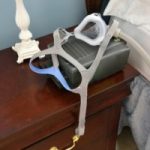 In an alternative study, researchers analyzed data from 525 patients studied by polysomnography in a sleep lab in Mallorca, Spain. Patients were assessed for prevalence of hyperuricemia, relationship between uric acid and sleep apnea, and the severity of metabolic abnormalities.
In an alternative study, researchers analyzed data from 525 patients studied by polysomnography in a sleep lab in Mallorca, Spain. Patients were assessed for prevalence of hyperuricemia, relationship between uric acid and sleep apnea, and the severity of metabolic abnormalities.
Patients with hyperuricemia were found to be older, heavier and have more severe sleep apnea. Furthermore, these patients had higher C-reactive protein levels, higher creatinine, higher insulin resistance and higher metabolic index. Even when results were altered to exclude diabetics, they still revealed the same outcome.
In conclusion, the study showed intermittent hypoxia and metabolic abnormalities affect uric acid levels in sleep apnea patients who do not receive treatment. Learn More
Sleep Apnea Diagnosis and Symptoms: Diagnosing sleep apnea in older women may be helped by new symptom
Researchers found that one symptoms can help diagnose sleep apnea in women.
Advertisement
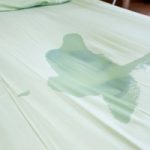 Bedwetting has been found to be a helpful symptom when trying to diagnose post-menopausal women with obstructive sleep apnea, according to new findings. The lead author of the study suggests that nearly two percent of post-menopausal women suffer from sleep apnea – a condition where a person can stop breathing while they are asleep. Post-menopausal women are often misdiagnosed because women underestimate the symptoms associated with obstructive sleep apnea.
Bedwetting has been found to be a helpful symptom when trying to diagnose post-menopausal women with obstructive sleep apnea, according to new findings. The lead author of the study suggests that nearly two percent of post-menopausal women suffer from sleep apnea – a condition where a person can stop breathing while they are asleep. Post-menopausal women are often misdiagnosed because women underestimate the symptoms associated with obstructive sleep apnea.
To reach their findings researchers analyzed data from over 161,000 post-menopausal women. Researchers noted prevalence of common obstructive sleep apnea risk factors along with the symptom of bedwetting. Learn More
This past year not only taught us that sleep apnea can harm our health, but it also revealed that seeking treatment can be an effective way to improve health. If you believe you have sleep apnea, use 2016 as a chance to get yourself checked. If you are diagnosed with sleep apnea, we hope you have more reason to get it under control.
